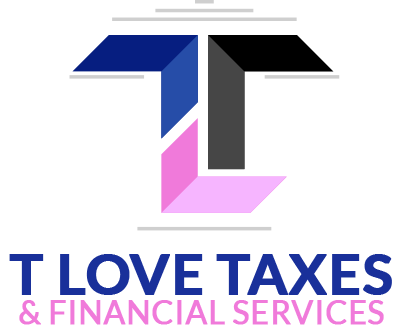Debt and credit play significant roles in your financial health. Whether it’s buying a home, securing a loan for education, or covering unexpected expenses, knowing how to handle debt responsibly is crucial. But in Indiana, where state and local tax regulations affect personal finance, managing debt and credit requires an extra layer of planning. If you’re seeking to build a strong financial foundation, improve your credit, or reduce debt, this guide will offer comprehensive strategies and actionable steps.
For personalized support with debt management and Tax and Financial Services in Indiana, T Love Tax and Financial Services has you covered.
Why Managing Debt and Credit Matters
Debt isn’t necessarily a bad thing. In fact, debt can help you finance significant investments, like buying a home, pursuing higher education, or starting a business. However, unmanaged debt can quickly spiral out of control. High debt levels and low credit scores restrict financial flexibility, make it difficult to access affordable credit, and can lead to significant stress. For residents in Indiana, managing debt and improving credit are essential for long-term financial stability.
Understanding Debt in Indiana
In Indiana, the average household debt includes mortgages, credit card balances, student loans, and personal loans. This debt mix can be healthy when managed properly, but without a clear plan, it’s easy to become overwhelmed by high interest rates and monthly payments. Understanding your debt profile is essential for planning repayment strategies effectively. Indiana also has unique tax laws that can impact how you handle debt and credit. Knowing how these factors play into debt management will give you an edge in managing your finances.
Debt-to-Income Ratio: The Basics and Why It Matters
Your debt-to-income (DTI) ratio is a simple yet powerful tool for assessing your financial health. Calculated by dividing your monthly debt payments by your gross monthly income, it indicates how much of your income goes toward debt. This number is crucial for lenders; typically, a DTI below 36% is considered manageable, while a DTI above 50% signals high debt risk.
Why DTI Ratio Matters for Your Credit
A high DTI can limit your borrowing power, making it harder to secure loans or credit at favorable interest rates. For anyone seeking a mortgage or business loan, lowering your DTI ratio should be a priority. Reducing debt and increasing income are two key methods to bring down your DTI.
Quick Tip: If you’re unsure of your DTI, it’s time to take a closer look at your monthly income and expenses to understand where you can adjust.
Crafting a Personalized Budget for Debt Management
A well-thought-out budget is essential for effective debt management. Start by listing all your income sources, then categorize your monthly expenses. In Indiana, don’t forget to account for state and local taxes, which can affect your overall cash flow. A budget enables you to see where you can reduce unnecessary expenses, freeing up funds for debt repayment.
Step-by-Step Budgeting Process
- Track Your Income – Include salary, freelance work, side hustles, and passive income.
- List Fixed Expenses – Such as rent/mortgage, utilities, insurance, and loan payments.
- Identify Variable Expenses – Groceries, entertainment, and miscellaneous costs.
- Set Debt Repayment Goals – Designate a portion of your budget specifically for debt.
- Reassess Monthly – Adjust as necessary to keep your goals on track.
Creating a budget can be as simple as pen and paper or using digital tools like Excel or budgeting apps. Indiana residents can further benefit by aligning budgets with state tax-saving opportunities. Visit our page on tax and financial services in Indiana for more budgeting advice.
Identifying and Prioritizing High-Interest Debt
Tackling high-interest debt first is one of the best strategies for debt reduction. By targeting accounts with the highest interest rates, you minimize the amount you’ll pay in interest over time. This approach is known as the debt avalanche method.
How to Implement the Debt Avalanche Method
- List All Debts by Interest Rate – Start with the highest rate.
- Pay Minimums on All but the Top Priority – Apply any extra funds to the highest-rate debt.
- Repeat Until the Highest-Interest Debt is Paid Off – Then, move to the next highest.
For those who prefer to tackle smaller debts first for quick wins, the debt snowball method may be preferable. Choose the method that keeps you motivated and consistent.
Exploring Debt Relief Options in Indiana
If you find your debt overwhelming, debt relief options might be worth considering. Indiana residents have access to several relief options, including:
- Debt Consolidation: Combine multiple debts into a single payment, ideally with a lower interest rate.
- Debt Settlement: Negotiate with creditors to pay less than the total owed.
- Bankruptcy: A legal option that can discharge certain debts, though it significantly impacts credit.
Each option has its pros and cons. For example, debt consolidation simplifies payments, while bankruptcy can eliminate debt but has long-term credit consequences. Always consult with a professional before pursuing any relief option. T Love Tax and Financial Services can help assess which path is best suited to your unique situation.
Steps to Boost Your Credit Score in Indiana
Credit scores are essential in obtaining loans, securing housing, and even determining insurance premiums. Improving your credit score takes time and dedication, but it’s achievable with these steps:
- Pay Bills on Time: Late payments can have a severe impact on your credit score.
- Reduce Your Credit Card Balances: Aim to keep your credit utilization ratio under 30%.
- Limit New Credit Applications: Each hard inquiry can temporarily lower your score.
- Fix Any Errors on Your Credit Report: Incorrect information can hurt your score unfairly.
Improving your credit can open doors to better financial opportunities. If you’re interested in understanding how credit impacts taxes, visit our tax planning strategies in Indiana guide.
Best Practices for Responsible Credit Use
Credit can be a powerful financial tool, but only when used responsibly. Here’s how to establish smart credit habits:
- Only Borrow What You Can Repay: Avoid charging expenses you can’t afford to pay off.
- Avoid Using Credit for Everyday Purchases: Reserve credit for emergency situations or investments.
- Regularly Check Your Credit Report: Ensure accuracy and monitor your financial health.
When used wisely, credit helps build financial credibility and secures favorable lending terms. Remember that it’s easier to avoid debt than it is to repay it.
How to Manage and Repay Student Loans
Student loans are a significant financial burden for many Indiana residents. Here are some strategies to manage and repay student debt effectively:
- Consider Income-Driven Repayment Plans: These plans adjust payments based on your income, making them more affordable.
- Look into Loan Forgiveness Programs: For those in qualifying public service roles, forgiveness options are available.
- Refinance Student Loans: Refinancing can lower your interest rate, but be cautious about losing federal loan protections.
Planning for student debt repayment can reduce financial stress and help you focus on building wealth.
When to Consider Credit Counseling and Debt Consolidation
Credit counseling offers professional advice on managing debt, budgeting, and credit improvement. Many Indiana-based non-profits provide low-cost counseling services to residents. Debt consolidation, meanwhile, is ideal for those with multiple high-interest debts. Consolidating debts can simplify payments, often lowering your overall interest rate.
Expert Insight: Working with T Love Tax and Financial Services can provide a tailored plan for managing your debts, whether through credit counseling or other methods.
Reducing Debt with Strategic Tax Deductions
Indiana residents can take advantage of tax deductions to reduce overall debt. For instance:
- Mortgage Interest Deduction: Reduces taxable income for homeowners.
- Student Loan Interest Deduction: Applies if you’re paying interest on qualifying student loans.
- Retirement Contributions: Some retirement contributions lower taxable income and help you build long-term savings.
Explore more about tax deductions with our guide to Indiana tax deductions.
Leveraging Tax Refunds for Debt Repayment
Tax refunds can provide a welcome financial boost. Instead of spending the refund, consider applying it toward high-interest debt, such as credit cards or personal loans. This can reduce the principal balance and save you money on interest.
If you’re unsure how to maximize your tax refund, consult T Love Tax and Financial Services for advice on using refunds to achieve financial goals.
Avoiding Common Debt Management Pitfalls
Many people make these common mistakes while managing debt:
- Ignoring High-Interest Debts: Tackling smaller debts first may feel good, but ignoring high-interest debt costs more in the long run.
- Overextending Credit: Using credit for non-essentials can quickly lead to financial strain.
- Skipping Payments: Missing payments affects your credit score and incurs additional fees.
Learning these pitfalls helps you avoid setbacks in your journey to becoming debt-free.
How T Love Tax and Financial Services Can Help
T Love Tax and Financial Services offers expert guidance in managing debt and improving credit. From tax deductions to strategic debt repayment plans, our team provides Indiana residents with solutions that fit their unique financial needs.
With a focus on personalized service and deep knowledge of Indiana’s tax regulations, T Love Tax and Financial Services can help you make the most out of your financial journey.
Conclusion
Debt management and credit improvement are challenging but achievable with the right approach. By creating a realistic budget, focusing on high-interest debt, and leveraging tax benefits, you can reclaim financial stability. For personalized advice, reach out to T Love Tax and Financial Services. We’re here to help you make informed decisions and take control of your financial future.
FAQs
1. What’s the best strategy for tackling debt in Indiana?
Start with high-interest debt and create a budget to allocate funds efficiently. This approach minimizes interest payments and improves cash flow.
2. How can I use my tax refund for debt repayment?
Tax refunds provide a lump-sum opportunity to pay down high-interest debt, effectively reducing future interest costs.
3. What are common mistakes people make in debt management?
Ignoring high-interest debt, missing payments, and overextending credit are common pitfalls. Avoiding these can streamline your debt repayment journey.
4. How can T Love Tax and Financial Services assist me?
We offer tax-efficient debt management strategies, helping you optimize budgets, minimize taxes, and reduce debt.
5. When should I consider debt consolidation?
Debt consolidation is ideal when you have multiple high-interest debts and can secure a consolidation loan with a lower interest rate.
For more insights on tax and financial services in Indiana, visit T Love Tax and Financial Services.

